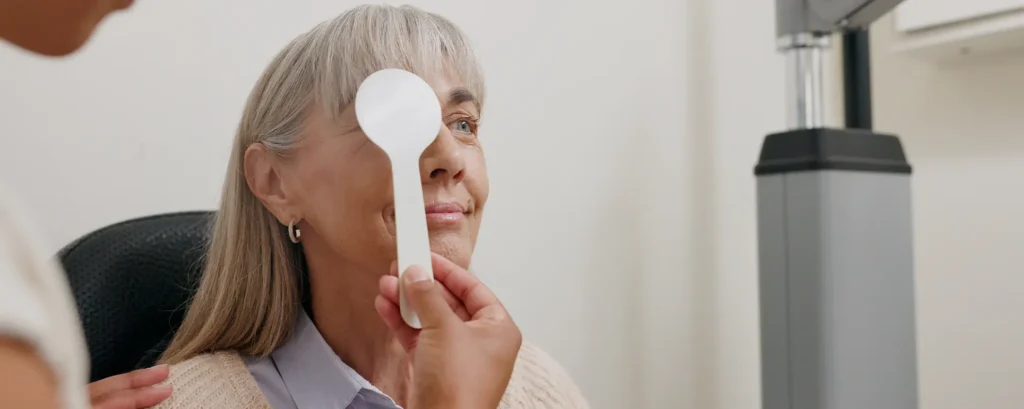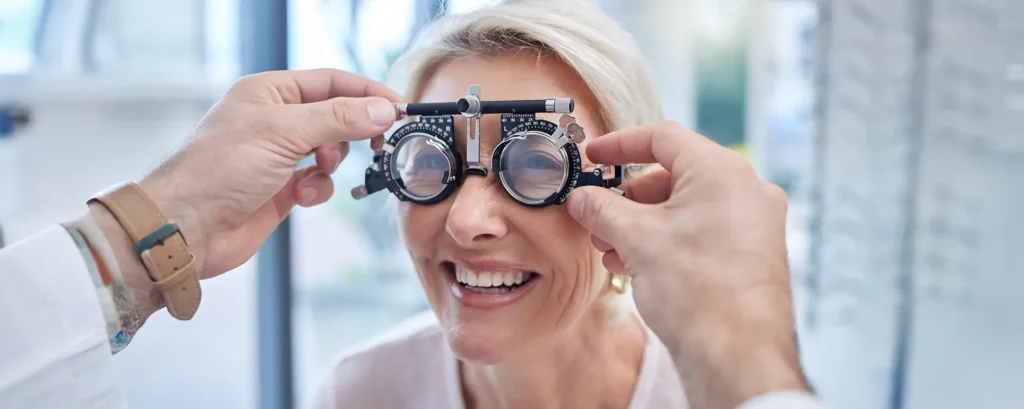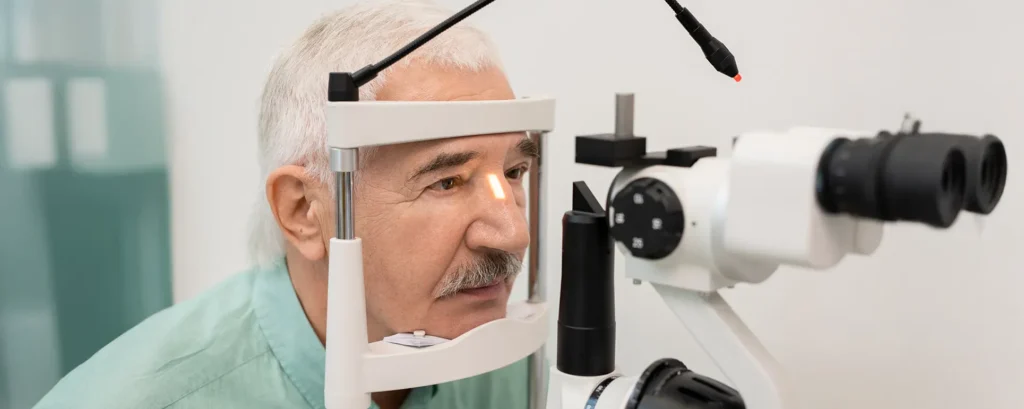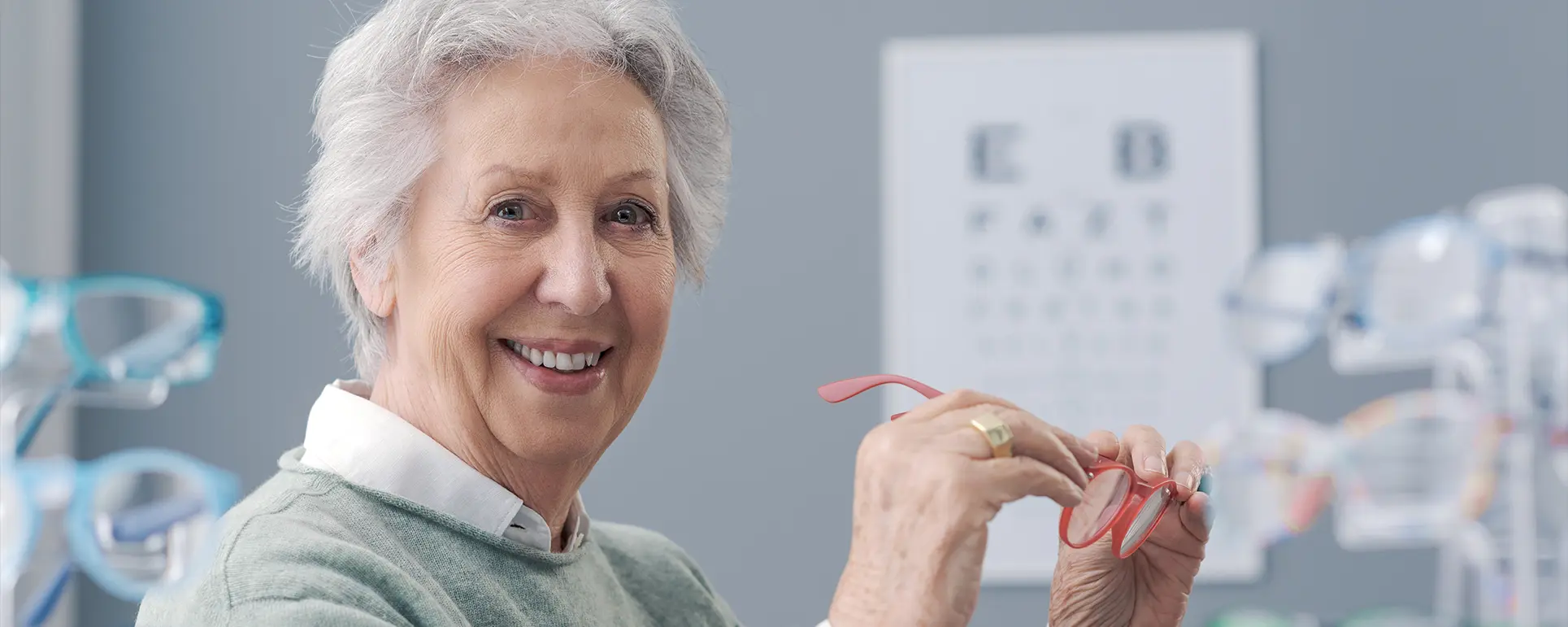If you’ve been told you have cataracts, one of the first questions that often comes to mind is: “How bad does my eyesight have to be before I can have surgery?” It’s a natural thing to wonder. After all, cataract surgery is the only way to restore clarity once the lens has clouded, and most people want to strike the right balance between not rushing into surgery too soon and not waiting until daily life feels impossible.
The truth is that there isn’t a one-size-fits-all answer. The decision to go ahead with surgery depends on a mix of factors: your actual vision measurement, how much cataracts interfere with your daily activities, your overall eye health, and sometimes even what you personally feel is acceptable for your quality of life. In this article, we’ll walk through the key considerations step by step so that you’ll understand exactly how surgeons assess readiness for cataract surgery.
What Do We Mean by “Qualify” for Cataract Surgery?

When doctors talk about whether someone “qualifies” for cataract surgery, they’re usually referring to two main things: medical necessity and patient suitability. On the one hand, the cataract must be having a noticeable impact on vision. On the other hand, the patient needs to be fit for surgery and able to benefit from it.
From the NHS perspective, the decision is often tied to visual acuity levels, such as being worse than 6/12 on the eye chart. Privately, surgeons tend to take a broader view and look at whether the cataract is affecting your independence, comfort, or safety. For example, if you struggle to drive at night due to glare but still technically “pass” the chart test, you may still be considered for surgery.
Vision Measurements and Cataract Surgery
Visual acuity, the score you get on the familiar eye test chart, is an important factor in the decision. Most surgeons look at whether your best corrected vision (with glasses) is 6/12 or worse. That’s the level at which many people begin to notice real restrictions, such as failing the driving test standard.
But it’s not only about the numbers. Someone might technically see 6/9 on the chart yet still struggle with blurred, cloudy, or hazy vision that makes reading or working uncomfortable. Conversely, another person might see 6/18 but not feel particularly limited in their day-to-day routine. This is why visual acuity scores are just part of the overall picture rather than the sole deciding factor.
The Role of Quality of Life
Quality of life is at the heart of deciding when cataract surgery is appropriate. Your surgeon will ask how much the cataract interferes with things you need or love to do. Struggling to recognise faces, missing steps on the pavement, or giving up night driving due to glare are all signs that your cataracts have reached the point where surgery could help.
Many patients are surprised to learn that they don’t need to wait until their vision is very poor. In fact, waiting too long can make surgery more complicated because the cataract hardens with time. What matters most is whether your vision is holding you back. If your hobbies, work, or safety are being compromised, that’s often enough reason to proceed.
Cataract Symptoms That Indicate It’s Time

There are several common symptoms that suggest your cataracts are interfering enough to make surgery worth considering:
- Difficulty with night driving due to glare from headlights.
- Colours looking faded or yellowed, making the world look dull.
- Frequent changes in glasses prescriptions without much improvement.
- Double vision in one eye that clears when the other is closed.
- Needing brighter light to read or finding fine print harder than before.
Each of these symptoms may start gradually, but if they begin to limit what you can safely or comfortably do, it’s often a sign that surgery should be discussed.
NHS Criteria Versus Private Clinics
If you’re in the UK, you might notice a difference between NHS and private pathways. NHS funding usually requires meeting specific visual thresholds or demonstrating that your daily life is significantly affected. Each NHS trust may set its own cut-off, but 6/12 visual acuity is often the benchmark.
Private cataract clinics are usually more flexible. They focus on whether surgery will improve your quality of life rather than rigidly applying a number. This means that if you’re struggling with glare, haloes, or reading despite good chart results, you may still be offered treatment privately.
The Risks of Waiting Too Long
Some people put off surgery because they worry their vision isn’t yet “bad enough.” While it’s wise not to rush, there are risks in delaying too much. Cataracts tend to harden with time, which makes them more difficult to remove. Advanced cataracts can also raise the risk of complications such as increased eye pressure or even inflammation.
Additionally, the longer you live with poor vision, the higher your risk of accidents. Falls, for example, are a serious concern for older patients with cataracts. For this reason, most surgeons advise not waiting until vision is extremely poor before seeking help.
Other Factors Beyond Eyesight

Vision level is just one part of the decision. Your surgeon will also consider other factors such as:
- General eye health: If you have other conditions like macular degeneration or glaucoma, surgery may need special planning.
- Overall health: Cataract surgery is very safe, but other medical conditions are taken into account.
- Lens choice: If you want a premium lens (like multifocal or toric implants), timing the surgery may matter.
These factors can influence not only whether you “qualify” but also what outcomes you can realistically expect.
Patient Choice and Shared Decision-Making
Ultimately, cataract surgery is an elective procedure — meaning you and your surgeon decide together when the time is right. It’s not like an emergency operation where there’s only one option. The surgeon provides medical guidance, but your input on how cataracts affect your life is equally important.
This shared decision-making approach ensures that the surgery happens at a point that makes sense for you personally. For many people, that means not waiting until vision is extremely poor but rather choosing surgery when it starts to impact safety, comfort, or independence.
Common Myths About Timing
There are a few myths that sometimes hold people back:
- “You need to wait until the cataract is ripe.” This is outdated advice. Modern surgery is easier before cataracts become very advanced.
- “You have to be nearly blind first.” Not true. If your vision interferes with daily life, you may already be ready.
- “Glasses can always fix it.” Glasses may help in early stages, but once the lens clouds significantly, only surgery restores clarity.
Understanding these myths can help you make a decision based on facts rather than fear.
Preparing for the Decision
If you’re unsure whether you qualify, it helps to keep track of your daily vision struggles. Make a note of when glare, blur, or colour changes get in the way. Bring this up during your consultation so your surgeon can see how much the cataract really affects you.
Sometimes surgeons may recommend waiting a little longer if the cataract is mild and your life is unaffected. But if you’ve already changed your habits, stopped certain activities, or feel unsafe, chances are you’re a candidate for surgery.
Frequently Asked Questions
1. Do I need to be almost blind before I can have cataract surgery?
No — you don’t need to wait until your vision is severely impaired. Cataract surgery is usually recommended once your eyesight starts to interfere with everyday activities such as driving, reading, or recognising faces. The idea that you should wait until the cataract is “ripe” is outdated; modern surgery is safer and more effective when done earlier, before the cataract hardens too much.
2. What is the minimum eyesight requirement for cataract surgery on the NHS?
The NHS often uses a benchmark of around 6/12 vision (the standard required for driving), but this can vary by local trust. If your sight falls below this level, or if the cataract is clearly affecting your daily life, you are more likely to qualify. Some patients with better acuity may still be eligible if they experience disabling glare or loss of contrast.
3. Can I have cataract surgery privately if my eyesight is still fairly good?
Yes. Private clinics place a stronger emphasis on your quality of life rather than a strict test result. If you have symptoms such as glare at night, faded colours, or difficulty with fine detail, a private surgeon may recommend surgery even if your chart results look “good.” The decision is tailored to how much the cataract affects your day-to-day comfort and safety.
4. What happens if I wait too long before having surgery?
Delaying too long can make the cataract denser and harder to remove, which may increase surgical complexity and slightly raise the risk of complications. Advanced cataracts can also contribute to eye pressure problems or inflammation. Beyond that, reduced vision over time can increase your risk of falls and accidents, especially in older patients.
5. Will new glasses help instead of surgery?
Glasses can sometimes improve your vision in the early stages of cataracts, but they cannot clear a cloudy lens. If you notice frequent prescription changes with little improvement, it’s usually a sign that glasses are no longer effective. At that point, surgery becomes the only option to restore clarity and sharper vision.
6. How do surgeons decide if I qualify for cataract surgery?
Surgeons take a balanced view that includes your visual acuity, the specific symptoms you report, and how much those symptoms limit your independence or enjoyment of daily life. They’ll also check the health of your eyes and discuss whether surgery is likely to give you a significant benefit. This shared decision-making process ensures the timing is right for you.
7. Is cataract surgery an option if my only problem is night vision?
Yes — night vision difficulties, especially glare and haloes around lights, are common reasons for surgery. Even if you can still read the eye chart well during the day, struggling to drive safely at night is considered a valid reason to operate, as it directly impacts safety and quality of life.
8. Can cataract surgery be done on both eyes at once?
In most cases, cataract surgery is performed on one eye at a time, with the second operation scheduled a few weeks later once the first has healed. Some clinics, particularly in the private sector, offer immediate sequential bilateral surgery (both eyes on the same day), but this is less common and carefully assessed for safety on a case-by-case basis.
9. How soon after diagnosis can I have cataract surgery?
If your cataract is already causing significant disruption to daily life, surgery can usually be arranged fairly soon after diagnosis, especially in private clinics. If your symptoms are mild, your surgeon may suggest monitoring the cataract for a while until surgery becomes more beneficial. The key is to balance safety with not waiting unnecessarily long.
10. Who should I speak to if I’m unsure about having surgery?
The best people to consult are your optometrist, who can monitor the progression of your cataract, and an ophthalmologist, who can assess whether surgery is right for you now. A consultation will give you a clearer idea of whether your eyesight and symptoms are at the stage where surgery is the best option.
Final Thoughts
So, how bad does your eyesight have to be to qualify for cataract surgery? The answer is: bad enough that it affects your quality of life, even if your vision chart numbers don’t look too alarming. While the NHS may set stricter thresholds, private clinics tend to take a more flexible view, focusing on your real-world experience rather than just the test score.
At London Cataract Centre, we see patients at all stages of cataract development and guide them through this decision with clarity and care. If you’re wondering whether the time is right, booking a consultation can give you the reassurance and personalised advice you need.

